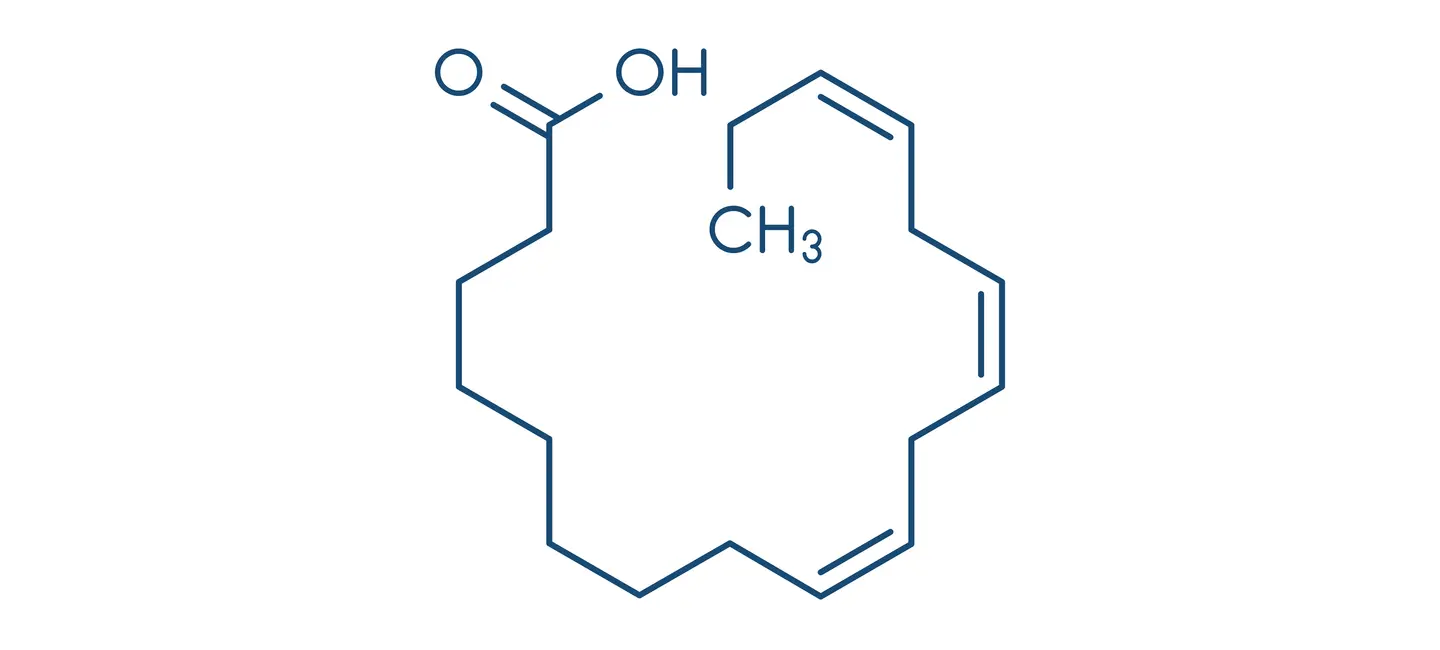
Alpha-linolenic acid (ALA) is an essential omega-3 fatty acid found in nuts such as walnuts. It is necessary for normal human growth and development.
Alpha-linolenic acid is thought to decrease the risk of heart disease by helping to maintain normal heart rhythm and pumping. It might also reduce blood clots. Common dietary sources include vegetable oils such as flaxseed and canola oil, as well as red meat and dairy products.
Alpha-linolenic acid is most commonly used for diseases of the heart and blood vessels, such as hardening of the arteries, heart disease, and high blood pressure. It is also used for other conditions, but there is no good scientific evidence to support most of these uses.
You have probably heard a lot about other omega-3 fatty acids such as EPA and DHA, which are found in fish oil. Alpha-linolenic acid may not have the same benefits as EPA or DHA. Be careful not to confuse alpha-linolenic acid with these other omega-3 fatty acids.
Is It Effective?
NatMed Pro rates effectiveness based on scientific evidence according to the following scale: Effective, Likely Effective, Possibly Effective, Possibly Ineffective, Likely Ineffective, Ineffective, and Insufficient Evidence to Rate.
- High levels of cholesterol or other fats (lipids) in the blood (hyperlipidemia). Eating foods or taking supplements high in alpha-linolenic acid does not reduce lipid levels in people with this condition.
There is interest in using alpha-linolenic acid for a number of other purposes, but there isn't enough reliable information to say whether it might be helpful.
Is it Safe?
When taken by mouth: Alpha-linolenic acid is likely safe for most adults when used in amounts found in foods. But keep in mind, it is high in calories and may cause weight gain if consumed in excess. There isn't enough reliable information to know if it is safe to use as a medicine.
Special Precautions & Warnings:
Pregnancy and breast-feeding: Alpha-linolenic acid is likely safe in amounts found in food. But not enough is known about the safety of alpha-linolenic acid during pregnancy and breast-feeding when used in higher amounts than those typically found in foods. Stay on the safe side and avoid alpha-linolenic acid supplements.
Kidney transplant: Consuming large amounts of alpha-linolenic acid might increase the risk for death after a kidney transplant. Until more is known, avoid alpha-linolenic acid supplements.
Prostate cancer. Alpha-linolenic acid might increase the chance of getting prostate cancer. Until more is known, do not take alpha-linolenic acid supplements if you already have prostate cancer or are at high risk for getting prostate cancer.
It is not known if Alpha-Linolenic Acid (ALA) interacts with any medicines. Before taking Alpha-Linolenic Acid (ALA), talk with your healthcare professional if you take any medications.
There are no known interactions with herbs and supplements.
There are no known interactions with foods.
Alpha-linolenic acid is an essential fatty acid. It's found in nuts, vegetable oils, red meat, and dairy. It's recommended that adult females consume 1.1 grams daily, and adult males consume 1.6 grams daily to maintain adequate nutrition. When pregnant, 1.4 grams should be consumed daily, and when breastfeeding, 1.3 grams should be consumed daily. Recommended amounts for children depend on age. Speak with a healthcare provider to find out what dose might be best for a specific condition.
Acide Alpha-Linolénique, Ácido Alfa Linolénico, Acide Gras Essentiel, ALA, Acide Linolénique, Acide Gras N3, Acide Gras Oméga 3, Acide Gras Polyinsaturé Oméga 3, Acide Gras Polyinsaturé N3, Essential Fatty Acid, Linolenic Acid, LNA, N-3 Fatty Acid, N-3 Polyunsaturated Fatty Acid, Omega 3, Omega 3 Fatty Acids, Omega-3, Omega-3 Fatty Acids, Omega-3 Polyunsaturated Fatty Acid.
Information on this website is for informational use only and is not intended to replace professional medical advice, diagnosis, or treatment. While evidence-based, it is not guaranteed to be error-free and is not intended to meet any particular user’s needs or requirements or to cover all possible uses, safety concerns, interactions, outcomes, or adverse effects. Always check with your doctor or other medical professional before making healthcare decisions (including taking any medication) and do not delay or disregard seeking medical advice or treatment based on any information displayed on this website.
© TRC Healthcare 2024. All rights reserved. Use and/or distribution is permitted only pursuant to a valid license or other permission from TRC Healthcare.
